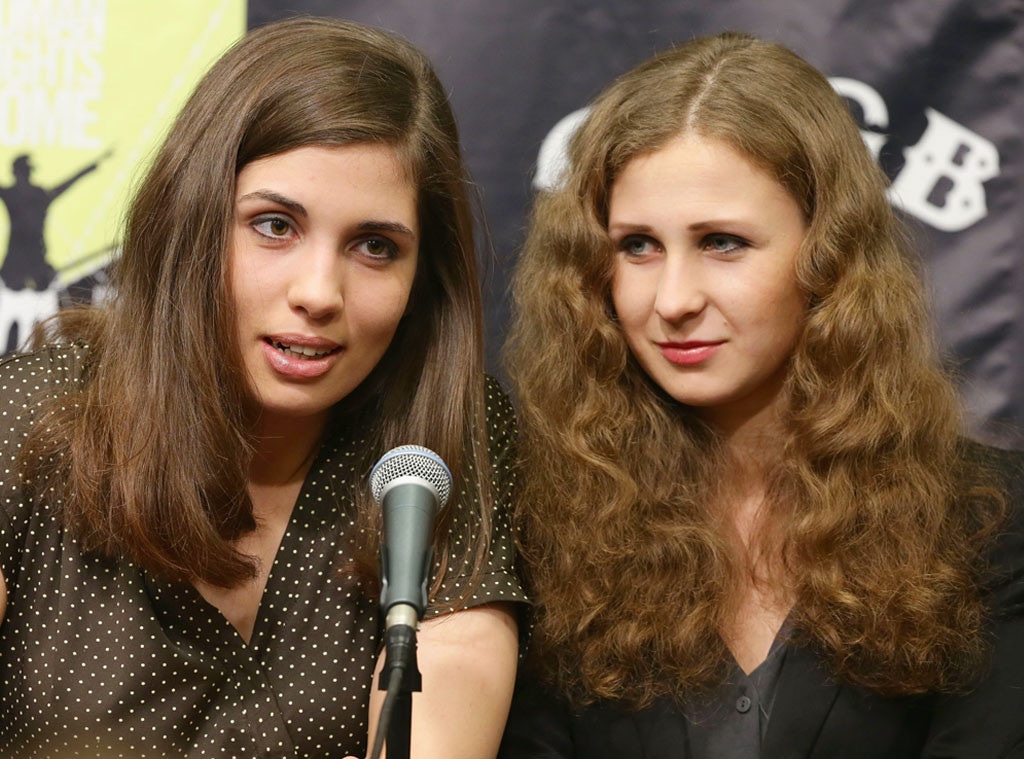 Neilson Barnard/Getty Images for CBGB
Neilson Barnard/Getty Images for CBGBMaria Alyokhina and Nadezhda Tolokonnikova are no longer involved with Pussy Riot, the six remaining members wrote in an open letter Thursday. Formerly known as "Masha" and "Nadia," Alyokhina and Tolokonnikova were freed in December 2013 after serving 16 months of a two-year prison sentence. They were arrested for staging a musical protest in a Moscow cathedral in 2012.
The six remaining members of the punk collective—Garadja, Fara, Shaiba, Cat, Seraphima and Schumacher—wish to remain anonymous. Pussy Riot belongs to a "leftist anti-capitalist ideology," while Alyokhina and Tolokonnikova have become "institutionalized advocates of prisoners' rights."
Alyokhina and Tolokonnikova performed with Madonna at an Amnesty International event in Brooklyn on Wednesday. That infuriated Pussy Riot, who wrote, "Our performances are always 'illegal,' staged only in unpredictable locations and public places not designed for traditional entertainment."
"They have said in every interview that they have quit the group and no longer represent Pussy Riot," the letter explained. "But all of their appearances are announced as appearances by Pussy Riot."
In light of their U.S. press tour, the letter said Alyokhina and Tolokonnikova "completely forgot about the aspirations and ideals of our group—feminism, separatist resistance, fight against authoritarianism and personality cult, all of which, as a matter of fact, was the cause for their unjust punishment."
The sextet wishes Alyokhina and Tolokonnikova the best. "Yes, we lost two friends, two ideological fellow member[s], but the world has acquired two brave, interesting, controversial human rights defenders—fighters for the rights of the Russian prisoners," the group wrote. "Unfortunately, we cannot congratulate them with this in person, because they refuse to have any contact with us."